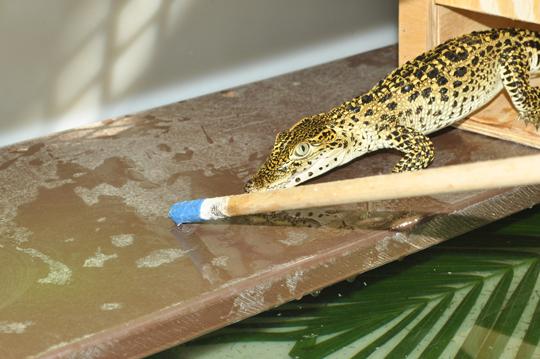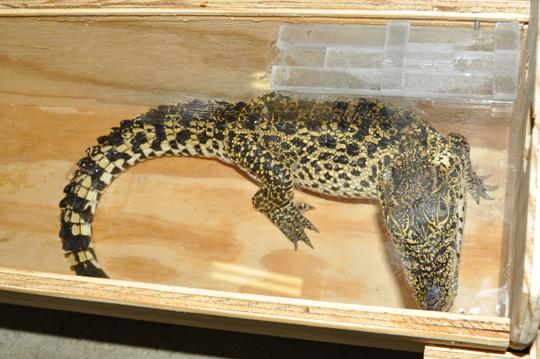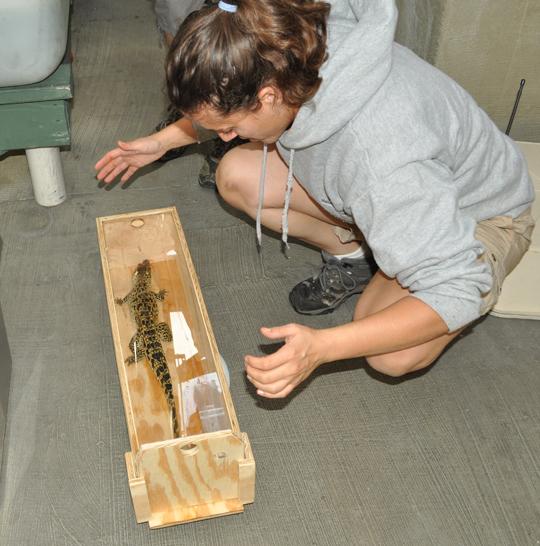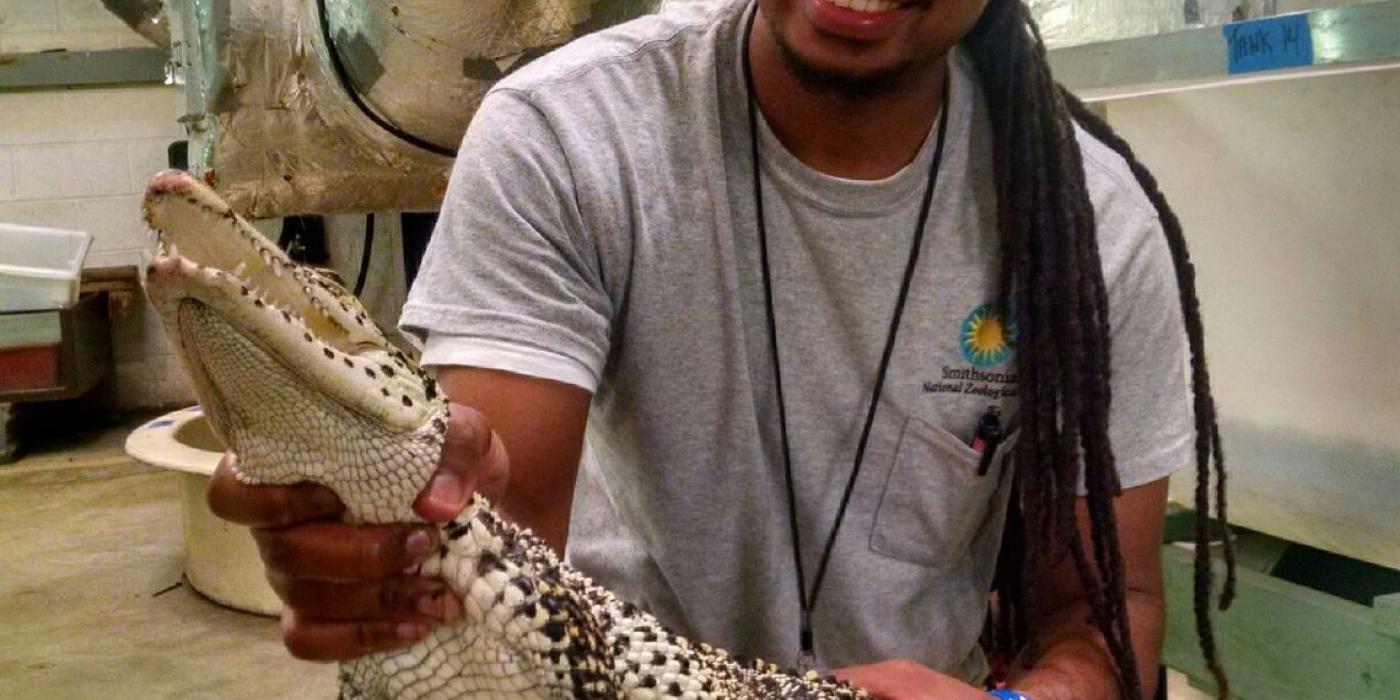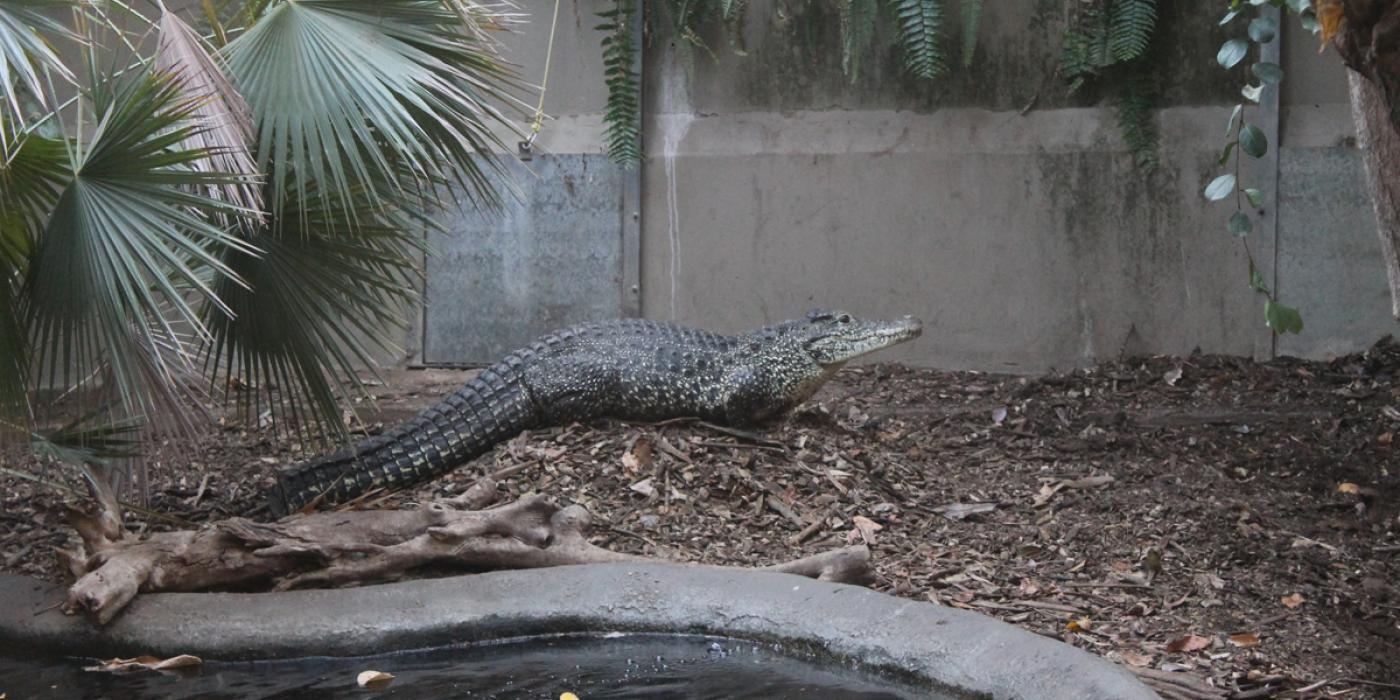The Croc and Gator Blog Jun 03, 2015
By Lauren Augustine
I bet you didn't know that we train our crocodiles—that's right crocodiles can learn! We use operant conditioning techniques much like the mammal and bird keepers at the Zoo.
There are a few reasons keepers at the Reptile Discovery Center use operant conditioning to train the crocodilians. First, crocodiles are dangerous animals and although we are experts and trained to handle these types of predators in a safe manner, training can help facilitate this process and increase safety. Second, training reduces any stress involved with day-to-day husbandry, as well as more infrequent animal needs, like veterinary care. Lastly, training allows us to learn about crocodile cognition and do research to help scientists learn more about this amazing group of animals.
One of the most common behaviors we ask the crocs to do is crate-training. During crate-training the croc is asked to enter a box designed to safely hold him or her. When the croc enters the crate, it is rewarded. This behavior is useful for animal moves, veterinary exams, and getting weights on the animals. In the crate, keepers and vets can look closely at a croc safely without anesthesia.
In 2012 RDC hatched out two Cuban crocodiles. These two babies started training programs a few months after hatching. The first behavior we taught was "target", a basic behavior where the crocodile touches his snout to the target pole. We can then use the target behavior to move the animal around and even walk him into a crate. The juvenile crocodiles were very quick to pick up these behaviors and now run into the crate when asked!

